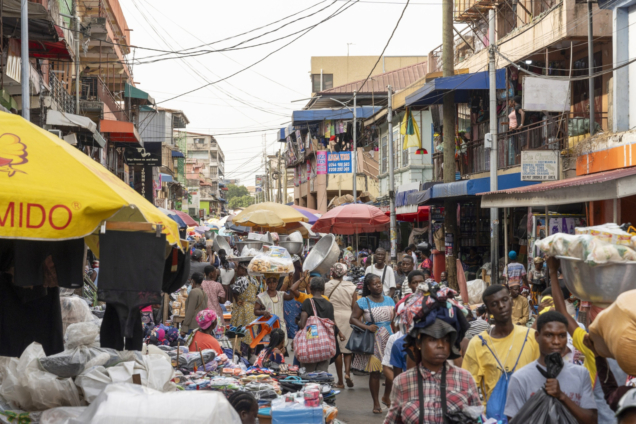Despite a notable increase in per capita income over recent years, widespread inequality persists in Ghana, according to the Institute of Statistical, Social and Economic Research (ISSER).
This revelation comes from ISSER’s 2024 Mid-Year Budget Review, titled "A Critical Assessment of the 2024 Mid-Year Budget by ISSER."
By June 2024, inflation had decreased to 22.8%, a significant drop from its peak of 54.6% in December 2022.
Although this reduction is attributed to tight monetary policies and fiscal consolidation efforts by the government, inflation remains high compared to 12.6% in December 2021.
The review indicates that while month-on-month inflation rates fluctuated in Q1 2024, consistent disinflation was recorded in Q2 2024.
Food inflation, averaging about 26%, continues to drive overall inflation, necessitating policies targeting supply-side factors.
ISSER stresses the importance of addressing the commodities driving inflation to achieve the end-period inflation target of 15%.
Recommendations include improving the road network in Ghana's food basket areas and reducing foreign exchange rates to lower transportation and fuel costs.
These measures could help reduce food and non-food inflation to single digits, making the medium-term inflation target of 8% ± 2% by 2025 plausible.
While per capita income has risen from USD 1,979 in 2016 to USD 2,365 in 2023, ISSER notes that widespread inequality remains a pressing issue.
Rising food prices and living costs have significantly impacted the working class, presenting inherent livelihood challenges.
"We recommend accelerating economic growth while implementing better policies to redistribute income," ISSER states in the review.
The institute underscores the need for a balanced approach that promotes economic growth and ensures equitable distribution of income to mitigate the adverse effects of inequality on Ghana's working class.
The ISSER report highlights that despite the positive economic indicators, the benefits of growth are not evenly distributed.
Addressing the underlying factors contributing to inflation and inequality is essential for creating a more inclusive and resilient economy.
Latest Stories
-
2026 World Cup: We are 100% confident Ghana will qualify – Bonsu Baah
23 minutes -
Springboard Road Show Foundation signs MoU with Youth-Led Organisations to scale Empower360 Impact
23 minutes -
Collateral Registry deploys Artificial Intelligence to strengthen system security and efficiency
26 minutes -
Vincent Joseph Robert Richter
27 minutes -
Prempeh I Int’l Airport runway extension project to be completed in 2025 – Transport Minister assures
29 minutes -
Applauding Ghana’s Independent Power Producers: Unsung heroes of the energy crisis
30 minutes -
Global economy set for weakest run since 2008 – World Bank
37 minutes -
GIPS congratulates Basil Ahiable on his appointment as board chairman of PPA
1 hour -
Ayra Starr makes history with first BET Award for Best International Act
2 hours -
ORAL had 33 cases, whistleblowers push count beyond 50 – Deputy AG Srem Sai reveals
3 hours -
Tems excited ahead of historic FIFA Club World Cup show
3 hours -
Some former appointees are providing information against their ex-colleagues – Dr Srem-Sai
3 hours -
NAPO is under investigation for mathematical sets procurement, other issues – Dep AG Srem Sai reveals
4 hours -
Dozens of ex-gov’t officials quietly answering for their tenure without fanfare – Dep AG Srem Sai
4 hours -
South African business confidence edges up in May after big drop in prior month
5 hours

